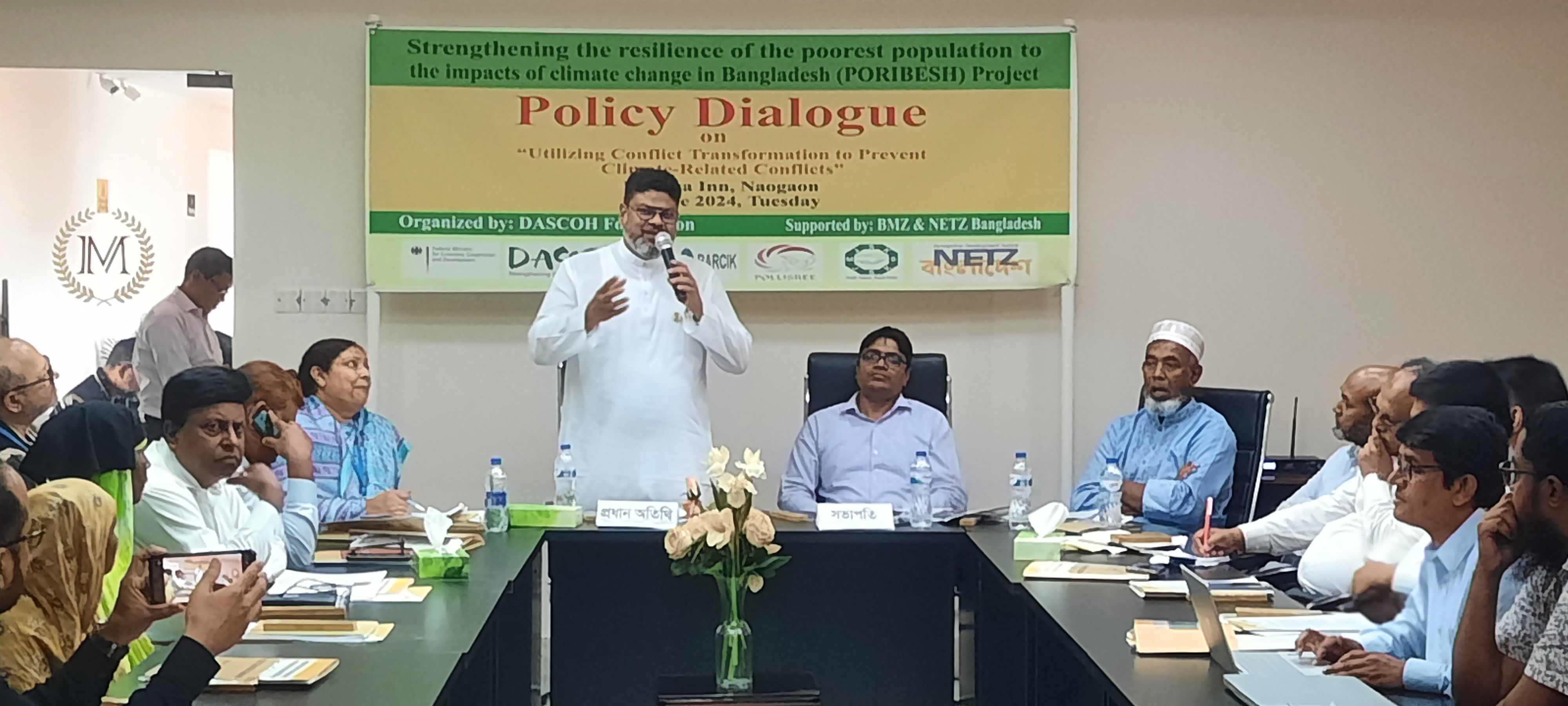
RAJSHAHI, June 11, 2024 (BSS) - Holistic approach of all the government and non-government organizations concerned can be the crucial means of ending conflicts caused by climate change in the region, particularly in its vast Barind tract.
The adverse impact of climate change has been posing serious threats to the living and livelihood conditions of people, particularly the marginalized and ethnic minority communities.
So, all the public and private organizations concerned should come forward and work together to overcome the social problems through taking the issue into special consideration.
Public representatives, government officials and development activists unanimously came up with the observation while addressing a policy dialogue styled "Utilizing Conflict Transformation to prevent climate related Conflicts" at Mallika Inn, Naogaon today.
On behalf of its 'Strengthening the resilience of the Poorest Populations to the Impacts of Climate Change in Bangladesh (PORIBESH)' Project, DASCOH Foundation organized the meeting supported by BMZ and NETZ Bangladesh.
During their keynote and concept paper presentations, Programme Manager of NETZ Bangladesh Sheikh Zakir Hossain and Deputy Director of DASCOH Foundation Jahangir Alam Khan gave illustrations of the project along with its aims, objectives and implementation strategies.
They told the meeting that small agriculture, sharecropping, wage earning, homestead gardening, cattle and poultry are being detected as high impacted and vulnerable sectors, while trees, plants, orchard, fisheries both capture and culture as medium Vulnerable sectors.
Adverse impact of climate change has also been affecting various other sectors, including access to drinking water, cooking fuel, WASH, house and habitats, the schooling and education of children, market linkages.
They, however, said their project is being implemented for improving living and livelihood conditions of 2,800 households in 75 villages under Raninagar and Atrai upazilas in Naogaon District through various public events on climate change impacts and coping strategies.
Advocate Omor Faruque Sumon, MP, addressed the dialogue as chief guest, while Additional Deputy Commissioner Abdul Karim was in the chair. Chief Executive Officer of DASCOH Foundation Akramul Haque welcomed the participants.
District Education Officer Lutfor Rahman, Executive Engineer of Bangladesh Water Development Board Foyzur Rahman, Assistant Director of the Department of Environment Molin Mian and Upazila Chairmen Abdur Rouf and Ebadur Rahman also spoke.
In his remarks, lawmaker Omor Faruque called for more research and innovations related to exploring vulnerabilities, adaptation capacities and conflict dynamics in the context of climate change in the region.
He also stressed the need for exploring the underlying factors increasing vulnerability of people identifies prevailing adaptive capacities and adaptation needs.
Uncovering the conflict resolution strategies and human rights mechanisms can be the best way of promoting equity and climate justice, he added.
The meeting was also told that family conflicts over taking extra time by women over collecting water and bathing along with conflict over fuel wood collection and natural resource collection has become regular phenomena.
Besides, the incidents of conflicts at family level were most frequent in the water-stressed areas in the high Barind area triggering livelihood crises in the context of slow onsets that accelerated family feud.
Health hazards due to climate change impacts accelerate medical expenses resulting in increased family tensions.